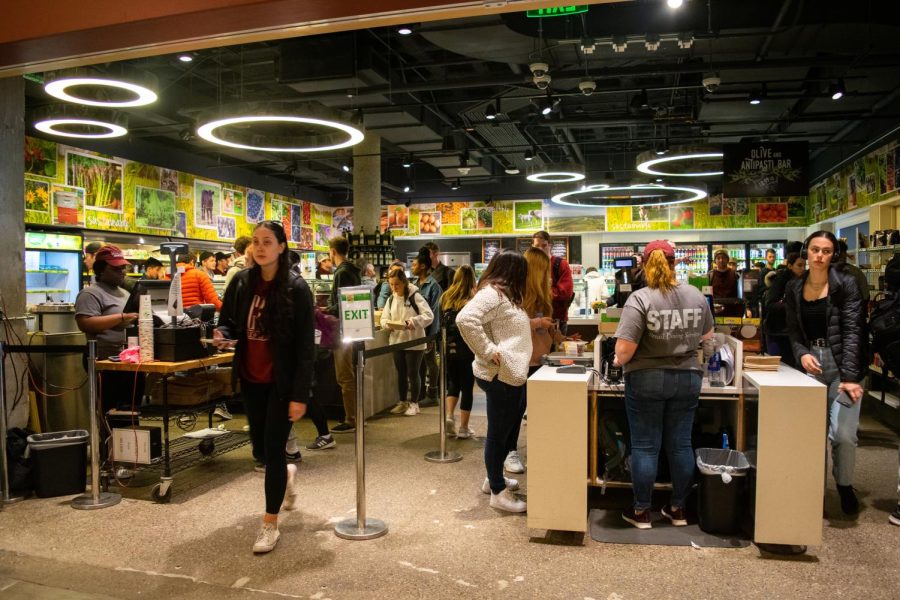At the beginning of the semester, dining services at the University of Massachusetts offered extended Grab N’ Go hours as part of a program to “encourage some de-densification at dining sites, keeping student health and safety a top priority.”
Also part of the de-densification program: giving 30 free YCMP meal swipes to students with residential meal plans, which could be used until Feb. 13. YCMPs are worth up to $10.50 at retail dining locations and can be used for entry into dining halls.
This decision was confusing to say the least, especially because it was marketed to prevent the spread of COVID-19. If students aren’t packed into dining halls, they’re standing shoulder-to-shoulder at Blue Wall in lines that snake from one location to the other at the start of the semester.
Instead of substituting a meal at a dining hall with a meal elsewhere, many students aimed to use up all 30 swipes within the two-week timeframe.
Director of Residential & Retail Dining Services Garett DiStefano told the Amherst Wire, “What I’m seeing now, in the last couple of days with Harvest, is that we’re starting to see some areas where students are utilizing these swipes in manners we really didn’t design it to do.”
The race to use up leftover dining dollars and YCMPs by buying drinks and pre-packaged snacks at Harvest Market is not a new phenomenon, but it’s typically contained to the end of the semester; a problem which has existed for at least a decade now.
“Imagine there is one week left in the semester, and I still have 20-something swipes left,” Kurt Colman wrote in a 2012 column in the Massachusetts Daily Collegian. “If I don’t use it, I lose sleep. I’ll be buying 40 bags of potato chips and multiple cases of energy drinks just so I can kill off all the swipes.”
Did UMass Dining expect residential students, faced with a time crunch and the equivalent of two extra meals per day, not to follow the same pattern of bulk purchasing? This problem was predictable and preventable.
The lines at Blue Wall and other dining locations around campus were long in early February, but at least students had control over where they chose to wait. Dining workers, however, had no such option. The decision to direct extra customers to already-strained dining locations was the wrong one.
With 1.7 million leisure and hospitality jobs open at the end of last year, it’s no secret that restaurants are dealing with the consequences of the labor shortage.
“While lots of breath has been spent suggesting people aren’t returning to these jobs because they’re lazy or on the government dole,” reported Vox, “the apparent shortfall in workers instead demonstrates longstanding problems with the industries themselves.”
Last summer, when several states rescinded their pandemic unemployment benefits, there was no meaningful change on the worker shortage. Post-pandemic, people are less willing to return to their low-wage, high-stress jobs.
Yamir Contreras, a housekeeper at a Rhode Island Hotel, told Vox that a shortage of housekeepers has increased her workload, but her pay has not changed. “Hotel jobs are hard,” she said. “When you work your whole life in a hotel, you go home, and you retire with a walking stick.”
The same is true at UMass. Encouraging students to buy more food than usual increases the workload for retail dining employees and contributes to the national shortages that already affect UMass Dining.
What UMass could have done to de-densify dining locations — like offering to-go containers at dining halls, for example — doesn’t matter now. Going forward, it’s on students to be aware of the stress UMass puts on its service workers and direct their frustrations about long lines and extensive wait times toward the administration, not other students and employees.
Catherine Hurley can be reached at [email protected] and followed on Twitter @cath_hurley.





















Dale Leone • Feb 22, 2022 at 1:12 pm
If the dining hall workers don’t have a union, they should consider it!